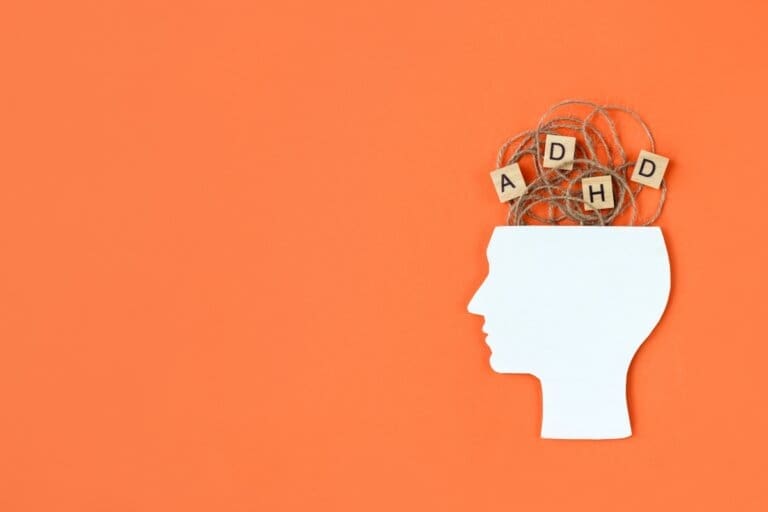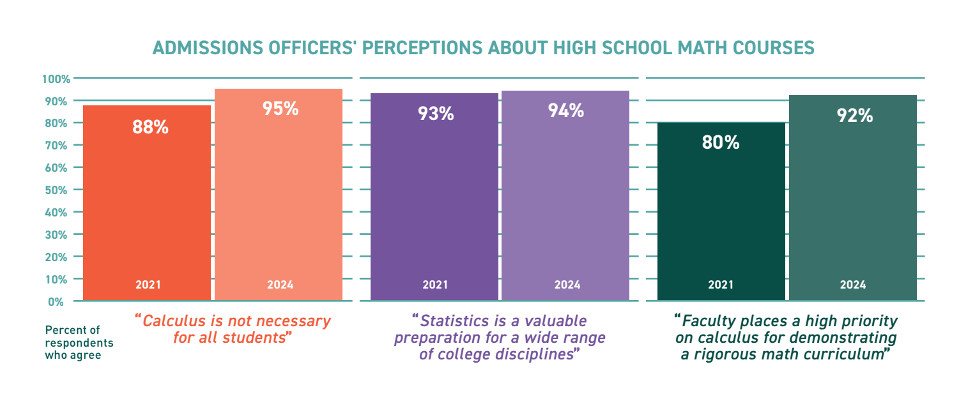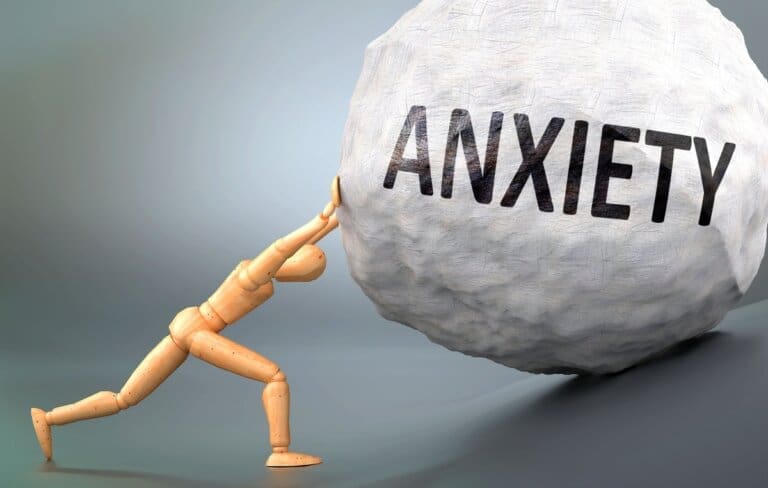ADHD and Addiction September 25, 2023 Prosperity Haven Addiction Treatment The National Institute on Drug Abuse states that approximately half of those who struggle with an addiction also suffer from a mental health disorder. In fact, it is very...
ADHD and Addiction

The National Institute on Drug Abuse states that approximately half of those who struggle with an addiction also suffer from a mental health disorder. In fact, it is very common for addicts to have co-occurring disorders.
When someone has this dual diagnosis, an addiction problem together with a mental health disorder, it can be very difficult to overcome the addiction if they are not addressing the other disorder at the same time. As both tend to feed off each other, it is crucial to have a treatment plan that addresses both simultaneously. In order to do so, we must first understand the mental health disorder, in this particular case, the ADHD.
What is ADHD?
Attention deficit hyperactivity disorder is a mental health condition that interferes with one’s ability to pay attention, making it difficult for them to focus on one particular task. ADHD also does not allow the person to exercise age appropriate inhibition. They display impulsive and hyperactive behavior that interrupts their daily functioning. While ADHD is usually diagnosed as early as preschool or early childhood years, it can sometimes be missed and only recognized later in life.
There are three behavioral types of ADHD. The first is hyperactive-impulsive. Symptoms of this include restlessness, fidgeting, running in situations where sitting is required, difficulty taking turns or waiting in lines, and answering before hearing the whole question. The second classification is inattentive type. This is characterized by inattention to detail, careless mistakes, inability to follow through on instructions and complete tasks, and not listening when addressed directly.
The third and most common type of ADHD is the combined type. This includes the symptoms of both the hyperactive-impulsive and inattentive types. While the causes of ADHD are not entirely known, research has shown that it is a highly genetic disorder and is often passed down from generation to generation.
Does ADHD Cause An Addictive Personality?
Many teenagers and adults suffering with ADHD exhibit addictive behaviors. The question then arises – can ADHD lead to addiction? While there is no direct genetic link between ADHD and addictive behaviors, there are many factors at play which can cause one diagnosed with ADHD to be more prone to having an addictive personality.
An individual suffering from ADHD is prone to thrill-seeking behavior, requires instant gratification, and is constantly on the search for pleasure-driven activities. Addictive behaviors provide an easy outlet to these desires. Additionally, a diagnosis of ADHD can often come with its own stressors, including difficulty keeping a job and remaining financially secure. Without the proper understanding and treatment of their condition, the individual may be motivated to self-medicate, putting themselves at risk for substance abuse disorders and other addictive behaviors.
The numbers speak for themselves. Whereas in the general population, approximately 25% of people will experiment with substance abuse, in the ADHD community, that number jumps to 50%. With double the chance of succumbing to an addiction problem, it is imperative to not ignore the neurological disorder that is ADHD.
Is ADHD Medication Addictive?
Things can get tricky when it comes to treating ADHD. Without the proper treatment, it can be all too easy for the individual to seek self-medication from unhealthy and unmonitored stimulants, which can quickly spiral downward into a full blown addiction. However, there is a common fear shared by many people that the medications that are used to treat ADHD, primarily Adderall and Ritalin, can be addicting in and of themselves.
However, growing research has shown that even though those suffering with ADHD can have addictive personalities, the ADHD medications used to treat these hyper-focused tendencies are usually not addictive. On the contrary, properly managed dosing, most often prescribed in extended or slow release formulas, not only helps to manage the symptoms of ADHD, but can help prevent potential substance abuse and addiction. How? By promoting more focused and rational behaviors that are less driven by impulsivity, thus boosting the individual’s self esteem.
It is important to differentiate here the difference between ADHD medication taken by those suffering from ADHD versus those who seek to enjoy its recreational benefits. As explained previously, when taken to treat the actual neurological disorder, the medication poses little risk of addiction and its benefits far outweigh the risks. On the other hand, if ADHD medication is abused for recreational purposes, it can definitely become addictive and lead to a substance abuse disorder.
Can Addicts Safely Take ADHD Meds?
Stimulant medications have proven to be the most effective form of treatment for ADHD. They act by increasing the levels of dopamine and norepinephrine in the brain, thus providing a calming sensation that allows the individual to focus more clearly and be productive. There are two classes of these types of stimulants, methylphenidate (MPH) and amphetamine (AMP).
Both of these stimulants are generally prescribed in extended release formulas. Because of their slow release, they do not offer the quick jolt or high that addicts typically crave. As such, with properly managed dosing and careful monitoring, addicts can safely take ADHD medications to treat the symptoms of their disorder. In fact, not doing so can be detrimental to their recovery.
Signs Of A Co-Occurring ADHD Disorder
It can sometimes be difficult to determine when a co-occuring disorder exists. All too often, the addiction takes over and it can be easy to miss the underlying ADHD. However, there are key symptoms which can help identify the signs of this dual diagnosis of ADHD and addiction. These include restlessness, agitation, mood swings, anxiety, the need for immediate reward or pleasure, the inability to delay gratification, lack of productivity in the workplace, and low self-esteem.
As is the nature of co-occurring disorders, it is often difficult to clearly separate the beginning of one and the start of the other. This is primarily because they tend to feed off each other. Without proper diagnosis and treatment, the individual suffering with this dual diagnosis will find themselves in an inescapable loop almost impossible to break free from.
How To Get Help With Prosperity Haven's ADHD & Addiction Treatment Program
At Prosperity Haven’s ADHD & Addiction Treatment Program, our professionally trained and highly experienced team works together with each patient to develop an individualized treatment plan that targets their mental health and addiction simultaneously. We understand the importance of this dual approach necessary to tackle the co-occurring disorders of ADHD and substance abuse.
Employing various therapies to address the underlying neurological issues, Prosperity Haven’s counselors offer cognitive behavioral therapy, medication assisted treatment, dialectical behavior therapy, trauma therapy, family therapy, and many other individualized treatments. Also offered are holistic therapies, including yoga, aromatherapy, art therapy, and breathwork. The integration of these mind and body therapeutic components allows each patient to heal in a uniquely personalized and well-rounded manner.
Allow Prosperity Haven to help you tackle the two-headed demon that is the co-occurring disorder of ADHD and drug addiction. With the accommodations necessary to treat this dual diagnosis under one roof, our dedicated team of clinical directors, therapists, behavioral health technicians, and nurse practitioners will carefully monitor your symptoms and guide you along your recovery journey. Reach out today to learn more.
YOUR NEW BEGINNING
STARTS HERE
Take the First Step and Reach Out Today
The post ADHD and Addiction appeared first on Prosperity Haven Ohio.














